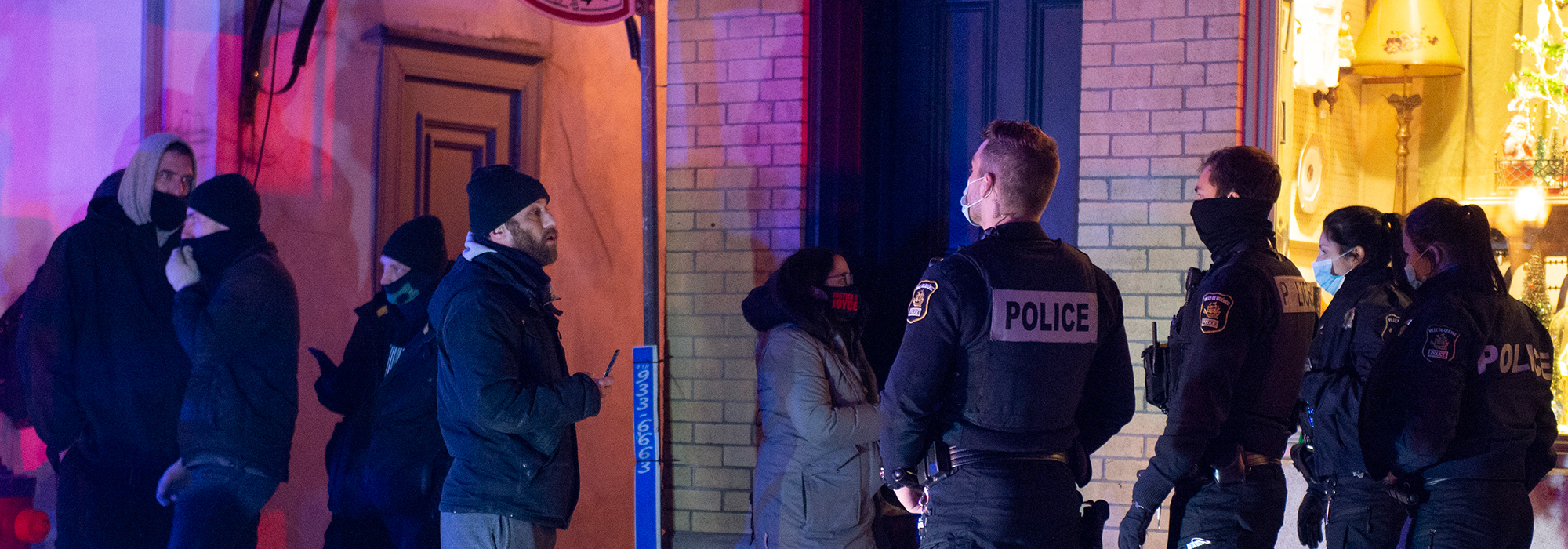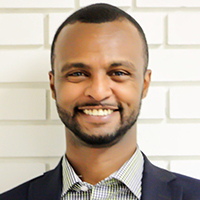
Canada has a legal system, which is very different from a justice system. A justice system is solely focused on ensuring all people have access to the necessities of life and removing any barriers to that end, while a legal system is concerned with maintaining the authority of the law no matter its injustice.
A justice-based lens, for example, would address youth criminality by shifting the focus from policing to eliminating poverty, discrimination and alienation. Policing is an inappropriate mechanism to addressing the ways Canada’s legal system creates the social, economic, and political health crises that form the root causes of criminality.
The coronavirus pandemic has only exacerbated the racial injustices embedded in policing and wider legal systems. Particularly, increased police surveillance has been a key tool deployed in response to the virus, ignoring the calls for substantive health-care improvements such as paid sick days, universal housing, guaranteed income, and health and safety protections for essential workers.
In March 2020, Canadian Health Minister Patty Hajdu delivered a chilling warning to Canadians: If we fail to follow public health guidelines that help limit the spread of COVID-19, governments, like Canada’s, will have to limit civil liberties. “Governments have to look at more and more stringent measures to actually contain people in their own homes,” Hajdu said.
Although Hajdu did not explicitly describe how the federal government would enforce stronger measures, her perspective shows that policing is a primary response to health crises and to reinforce legal authority. Indeed, provinces and municipalities have implemented a variety of strict law and order mechanisms. This will invariably further add to the surveillance experienced by Black and racially marginalized communities who cannot be locked down because of their overwhelming presence in essential work.
By early 2020, Ontario Premier Doug Ford invoked the Emergency Management and Civil Protection Act, which comes with a host of stiff penalties and increased powers for police forces. In Toronto, Mayor John Tory repeatedly called for increased police presence, handing out fines and an overall “zero tolerance” approach.
As we entered 2021, both Ontario and Quebec instituted stringent lockdowns with additional police powers. Meanwhile, stay-at-home requirements have been continuously contradicted, as mass evictions soar across Ontario. Like COVID-19, these evictions are particularly concentrated in Black and low-income communities.
The need for an emergency response mechanism may always be necessary for life-threatening situations such as the police life-saving role in Toronto’s 2018 flash floods. Nevertheless, legal oppression remains the biggest threat to the lives of Canadians and particularly for Black, Indigenous, and racially marginalized communities.
The pandemic has exposed the precarity in employment, housing, and health care for many Canadians and particularly the most marginalized. We need urgent investments in these vital areas in order to respond to what is a health crisis facing Canadians – not a surveillance crisis.
Throughout Canada and the U.S., building on decades of research, community-based groups have outlined ways to immediately reallocate police budgets to community services in the areas of youth development, homelessness, gender-based violence, mental health, drug use and emergency dispatch. Furthermore, this research has consistently pointed to the ways police, prisons, and courts are significantly costlier (and wasteful) tools for addressing the crisis of inequality.
Deploying civilian support workers who have expertise in dealing with community and individual crises is a valuable proactive approach to redressing systemic legal inequality including eliminating the disproportionate policing of marginalized communities. This strategy opens avenues for Black, Indigenous and racially marginalized communities to lead the development of appropriate and meaningful interventions for building their own healthy communities.
What’s more, policing, like prisons and courts, is systemically a reactionary mechanism unable to respond to the societal ills of racism, poverty, and exclusion. Proactive investments within Black, Indigenous and racially marginalized communities are required to allow for a removal of policing. For example, the over-policing and imprisonment of these communities was done on the pretext of cracking down on drugs and crime. This practice stifled – along racial and class lines – work opportunities, the ability to travel, housing, and access to credit. The immediate amnesty for all people with marijuana-related convictions with subsequent individual and community reparations would step toward rectifying this injustice.
A preventative, justice-based approach to crime-fighting can begin with redressing Canada’s colonial and racist history, which would include federal, provincial and municipal governments implementing poverty-elimination strategies, such as prioritizing access to quality housing, consistent mental and physical health care, affordable transportation and nutritious food regardless of income.
Our success in responding to the current COVID health crisis will not be measured by our ability to police it, but rather by our actions in overturning the injustices the pandemic has laid bare.
This article is part of the Identifying the Barriers to Racial Equality in Canada special feature.









